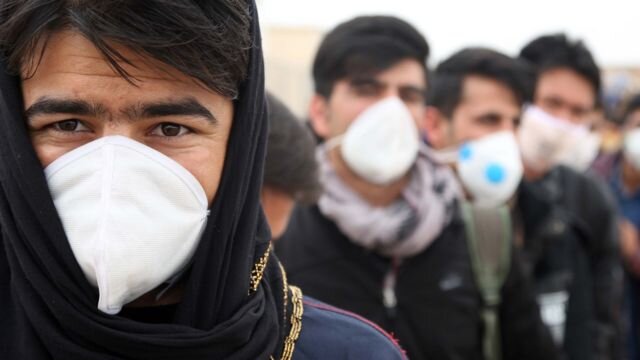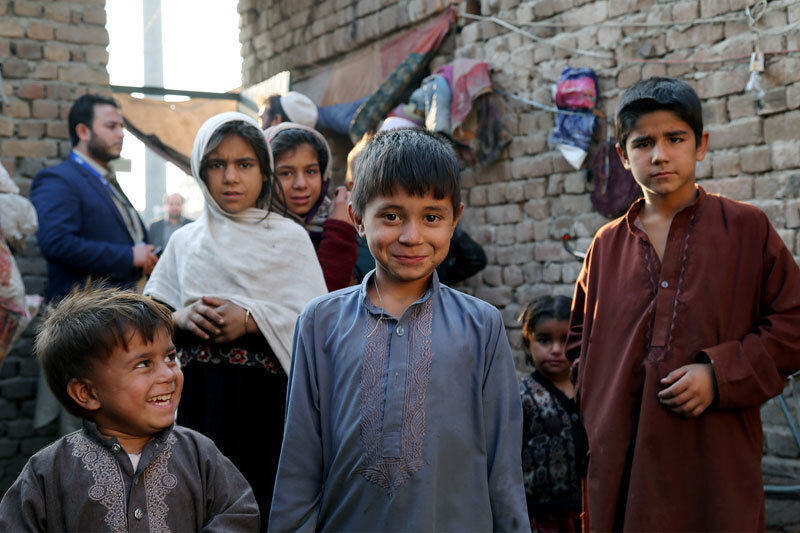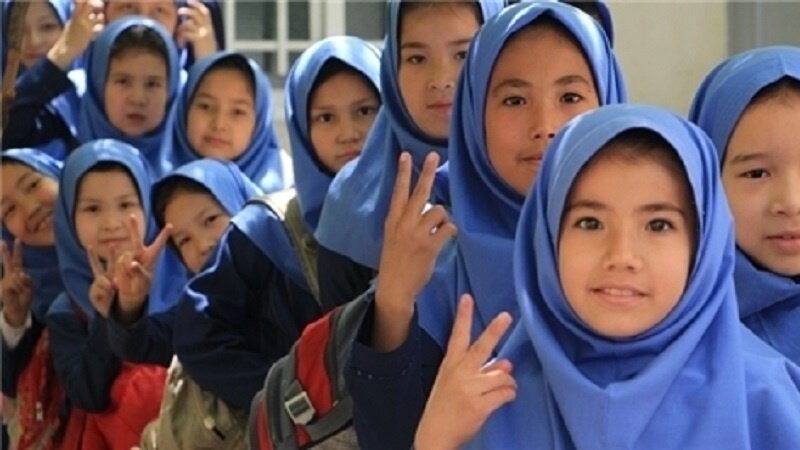Iran (IMNA) - Some 82 million people are forcibly displaced from their homes, 26 million in a country that is not their own, with 86 percent of refugees being hosted in developing countries.
“Together we heal, learn and shine” is the theme of World Refugee Day 2021, which aims at people belonging to all faiths, all over the world, working together to welcome stateless persons, displaced people, refugees, and others who have been forced to flee their homes.
During the past years, Iran more and more included refugees, undocumented or passport-holders in the national system, hosting close to one million refugees - most of whom are Afghans.
Based on the latest statistics, over 3 million Afghans are living in Iran - some 780,000 Afghan refugees, over 2 million undocumented Afghans, and another 600,000 Afghan passport-holders with Iranian visas.

For more than 40 years, the Government and people of Iran have shown incredible hospitality and generosity to Afghans, which is seen in very few refugee-hosting countries around the world.
Over the past year, the COVID-19 pandemic has affected people’s lives across the globe, causing millions of deaths, economic recession, restrictions on gatherings, and other severe limitations; and the refugees were no exception, bearing the consequences.
Iran, which has been dealing with the virus, was also impacted by U.S. sanctions. In fact, it was a major challenge to receiving international aid on time and was also a barrier to medicine and medical equipment import. So that, part of the financial problems the refugees are bearing is related to unilateral sanctions.
With the decreasing opportunities in Iran and with the situation still uncertain in Afghanistan, refugees are finding it harder to cope.
However, in light of the pandemic, all refugees, even those undocumented, benefited from access to free primary health services and free COVID-19 related testing, treatment, and hospitalization, just like Iranian nationals.
The same happened for the vaccination when the country has generously considered refugees over the age of 75 for vaccination against coronavirus.
This is while the Iranian Red Crescent Society (IRCS) has asked the International Committee of the Red Cross (ICRC) to provide 2 million doses of vaccine to inoculate Afghan refugees. So far, there has been no attempt made by the international community in this regard.
It is noteworthy to say that, COVID-19 has shown us that we are all connected to each other, and without a global response, the pandemic will not be eradicated unless everyone in society is included within national health policies, including refugees, asylum seekers, and even those with uncertain legal status.

Afghan refugees receive free treatment amid coronavirus
Iran ramped up its production of essential medical equipment, and independent entrepreneurs – refugees included – have redirected their efforts towards contributing to the national COVID-19 response.
However, the coronavirus shows no sign of abating and, with a socio-economic environment placed under additional strain, Iran needs more support to be able to help the increasing number of people affected by the virus, including refugees.
In order to support the refugees living in the country, the seventh phase of the health insurance plan will cover 120,000 vulnerable refugees through a memorandum of understanding signed between the Health Insurance Organization and the United Nations High Commissioner for Refugees.
In Iran, UNHCR is seeking $16.2 million for its COVID-19 emergency, while requires an additional $98.7 million to support Iran in maintaining and sustaining its commendable inclusive refugee policies, under the umbrella of the Solutions Strategy for Afghan Refugees (SSAR).
Supports for Afghan refugees in Iran
Iran spends about 20 trillion rials (nearly $477 million at the official rate of 42,000 rials) every year on the education of foreign national students residing in the country, head of the international affairs department of the Ministry of Education Gholamreza Karimi said in March.
Over 474,000 Afghan national children are receiving education in Iran completely free of charge, he added.

Out of 970,000 foreigners (men and women) in working-age of 15 to 60 years, some 36,000 are under social insurance coverage in the country, head of Social Security Organization’s department for foreign nationals Ahmad Reza Khazaei said in July 2018.
Iran is host to one of the largest and most protracted refugee populations worldwide.
Refugees in the world
Every minute 20 people leave everything behind to escape war, persecution, or terror. There are several types of forcibly displaced persons, including, refugees, asylum seekers, internally displaced persons, stateless persons, returnees.
Refugees are among the most vulnerable people in the world. The 1951 Refugee Convention and its 1967 Protocol help protect them. They are the only global legal instruments explicitly covering the most important aspects of a refugee’s life. According to their provisions, refugees deserve, as a minimum, the same standards of treatment enjoyed by other foreign nationals in a given country and, in many cases, the same treatment as nationals.
The 1951 Convention contains a number of rights and also highlights the obligations of refugees towards their host country. The cornerstone of the 1951 Convention is the principle of non-refoulment. According to this principle, a refugee should not be returned to a country where he or she faces serious threats to his or her life or freedom. This protection may not be claimed by refugees who are reasonably regarded as a danger to the security of the country, or having been convicted of a particularly serious crime, are considered a danger to the community.
By Faranak Bakhtiari
Tehrantimes


Your Comment